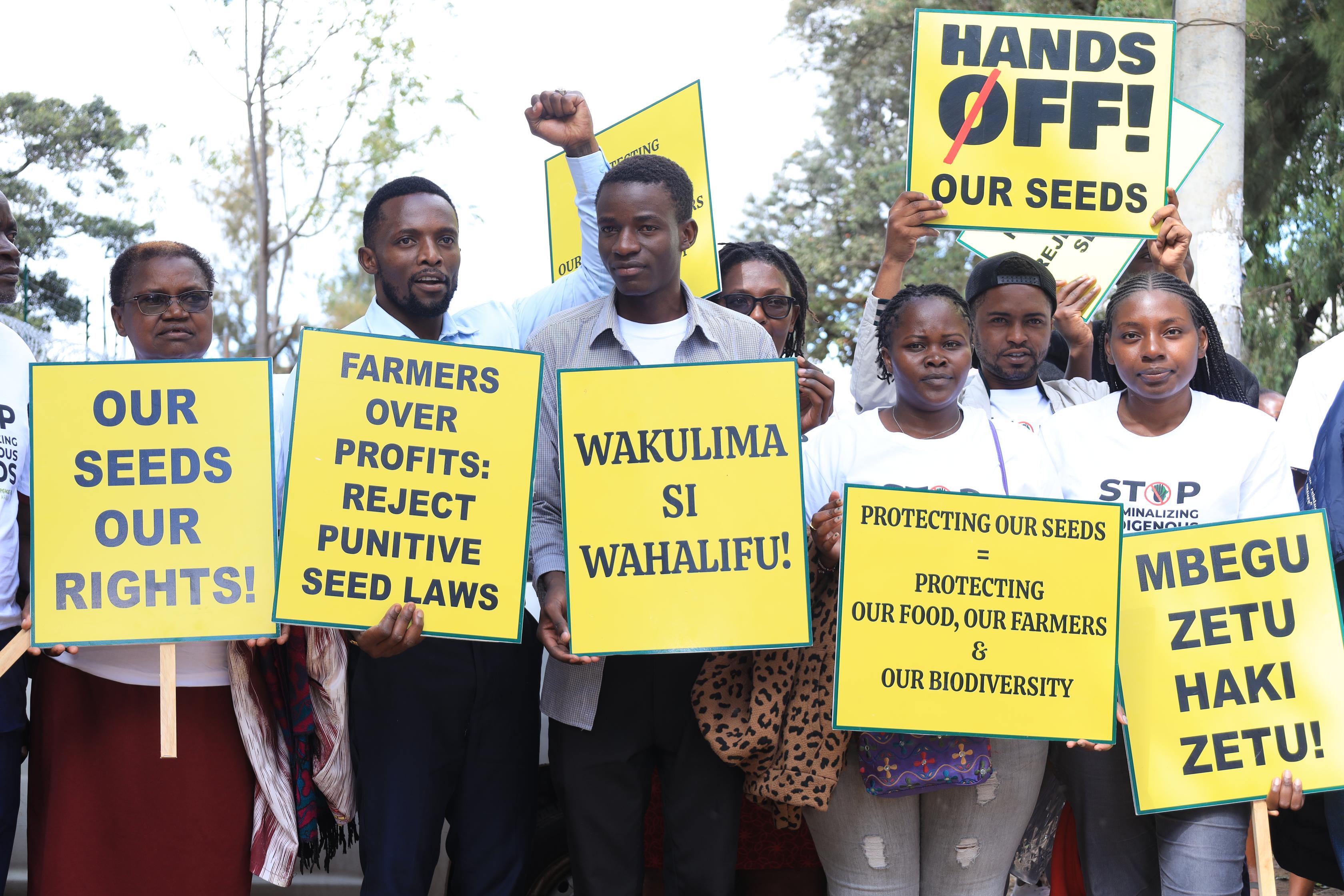

Small-scale farmers across the nation will soon learn whether they can freely exchange uncertified seeds. A decision on this matter is expected in a few months.
The High Court in Machakos has scheduled a petition filed by 15 smallholder farmers challenging the Seed and Plant Varieties Act that criminalises the sale, barter or exchange of uncertified and unregistered seeds, including indigenous ones, for a judgment on November 27.
The law imposes penalties of up to Sh1 million, an imprisonment of up to two years or both for individuals involved in the unauthorised sale or distribution of seeds.
“A person who, while not registered as a seed merchant, imports, processes and packages seed for sale purposes, sells or displays for sale any seed which does not correspond with the description in any certificate required to be produced, offers for sale seed that fails to meet the requisite standards or has been rejected at any seed certification stage shall be guilty of an offence,” it reads in part.
This, the petitioners have said, limits farmers’ ability to grow their desired and locally available crops, leading to loss of diversity, while encouraging corporate control of seeds.
The petition was filed in September 2022 seeking to compel the government to review sections of the law that they say are punitive to smallholder farmers.
"The Act introduced provisions that essentially criminalise farmers for exchanging, selling, and using their own seeds,” advocate Emily Kinama said.
Kinama, who represented Biodiversity and Biosafety Association of Kenya, spoke during a hearing session held on Tuesday before Justice Rhoda Rutto.
She said the law imposes unaffordable fines and jail time on peasant farmers who have nurtured Kenya’s agriculture for generations, creating fear.
The Act, she added, undermines the right to food and discriminates against those with less economic power.
Biba Kenya has been organising campaigns across the country to encourage more Kenyans to consume indigenous foods that are more nutritious.
Greenpeace Africa that supported the petitioners to file the suit told the court that exchanging seeds is an ancient cultural practice and that any law that curtails such a foundational part of Kenyans’ culture is unconstitutional.
Through its advocate Alvin Munandick, Greenpeace Africa said the Kenyan constitution expressly protects the right to culture, and that that is a key pillar of the petition.
The Law Society of Kenya, which has been enjoined in the case, claims the law allows seed inspectors to invade farmers’ homes and seize seeds.
“This results in arbitrary detention of property. Such measures violate the principles of our constitution,” Wambugu Wanjohi, who represented LSK, said.
After the hearing, farmers held a peaceful procession through Machakos town carrying banners with writings supporting their fight for food sovereignty.
One of the petitioners, farmer Justus Mwololo, said they had presented evidence in court that their rights are being violated.
"We expect the court to uphold our rights, so our seeds remain with us and not under the control of merchants or outsiders."
Fellow petitioner Penninah Ngahu challenged the government to consider supporting smallholders in multiplying indigenous seeds if it believes there’s a seeds shortage.
According to Food and Agriculture Organization, farmer-managed seed systems are the cornerstone of a bio-diverse, climate-resilient, equitable food system and are essential to achieving food security.
FAO says that more than 80 percent of seeds used by Kenyan farmers emanate from farmer-managed systems.
Daniel Wanjama from the Seed Savers Network underscored the need to have the Act reviewed, saying criminalising such seeds is like criminalising food security and risking hunger.
Biba Kenya chairperson Anne Maina urged farmers to remain vigilant as they await the judgment and continue advocating for farmer-managed seed systems “to protect the legacy and rights of our grandmothers and indigenous farmers who have fed us for generations”.















